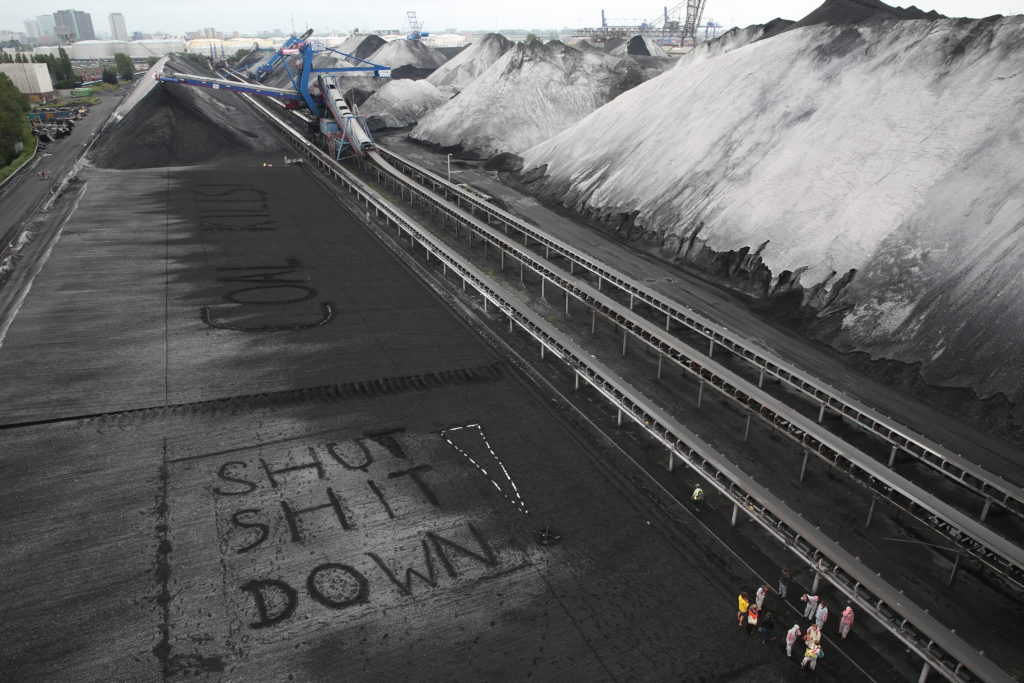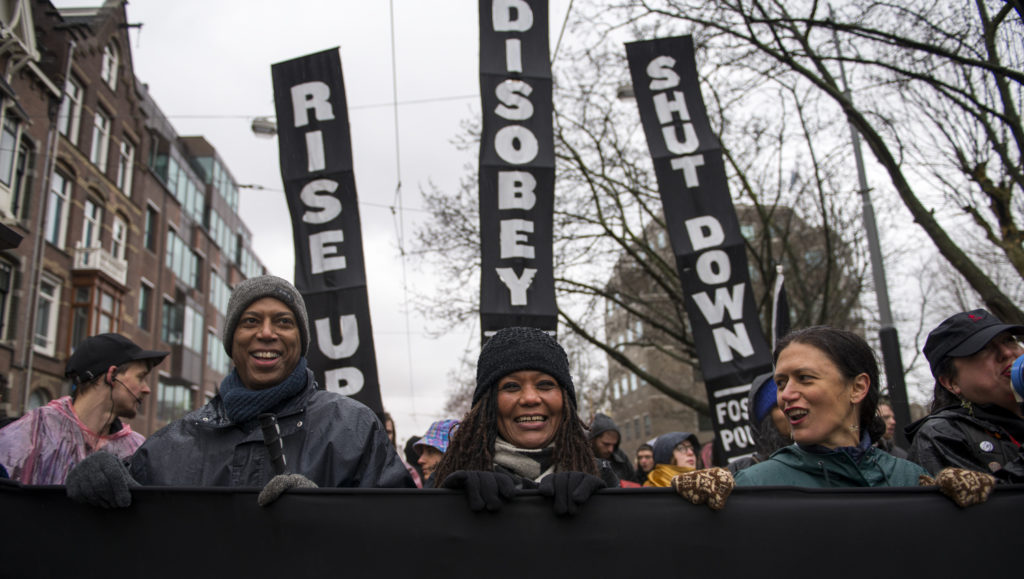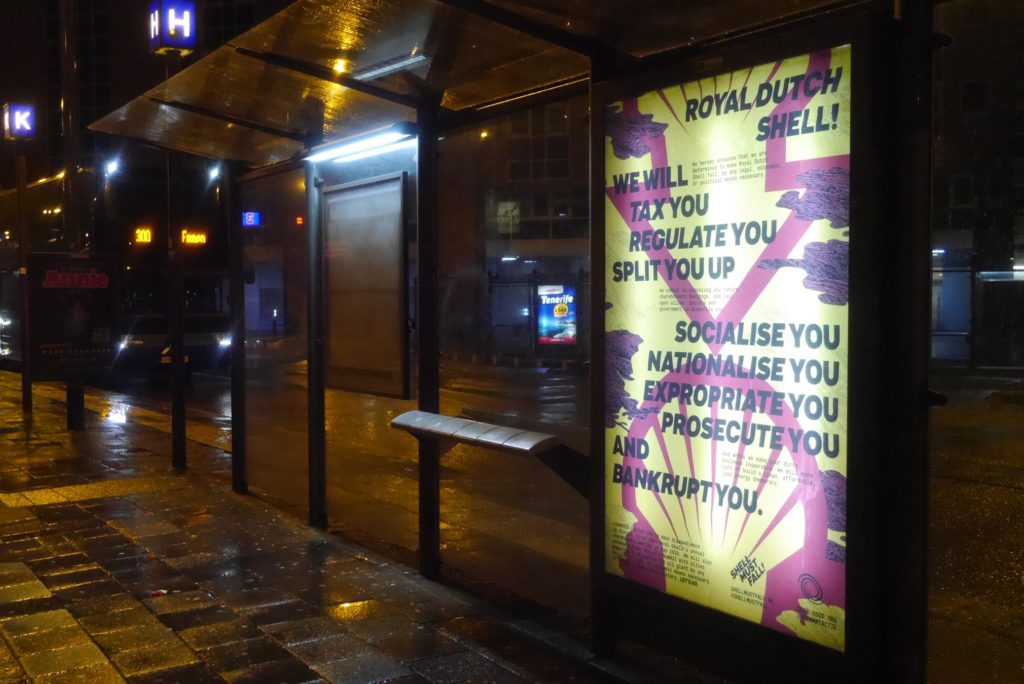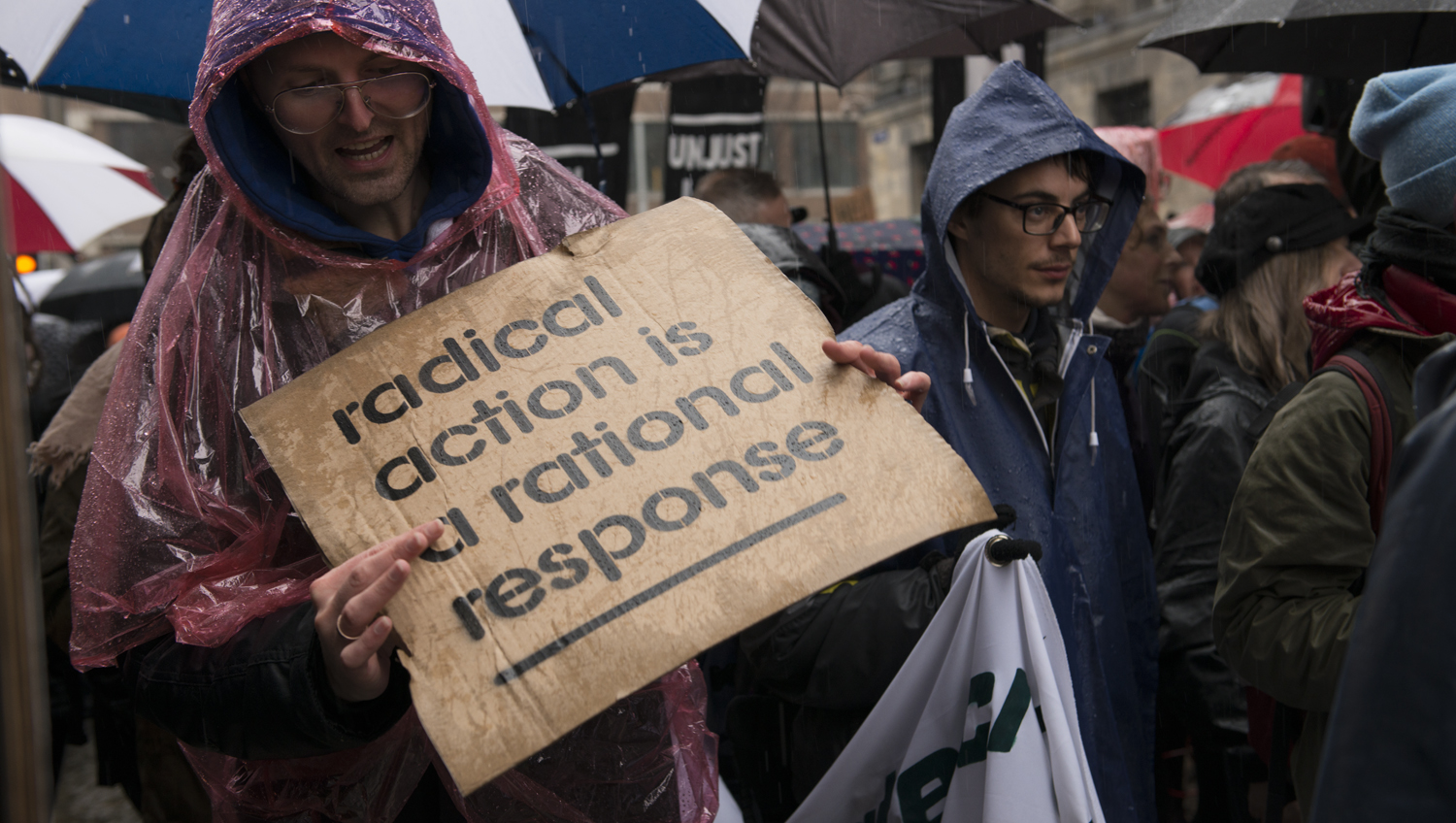Introduction to a co-created System Change series.
This article is the start of a series of contributions to make sense of the crises that we are facing, to explore facts, opinions and groundbreaking ideas and together develop a path towards a better future. Do you want to contribute? Send an email to info@code-rood.org
It feels as if the world is continually in crisis–now more so than ever.
We have undoubtedly hit a definitive moment in our history. We are living in strange times where, for many of us, the world is at a standstill. Over the past few weeks, many of us have lost our jobs, and economies are grinding to a halt. Any initial warning signs could not have prepared us for what has just happened, and we are all waiting to see what will happen next. Nonetheless, this cataclysmic event did not emerge out of thin air. Experts have been warning about the chance of a severe global pandemic for a long time, resulting from our unethical handling of animals, our constant international aerial transportation, our destruction of finely balanced ecosystems, dramatic social inequality, weakened healthcare systems, and so on and so forth. We must acknowledge that any global crisis cannot simply be reduced to a single originary cause. This current crisis is unique, however, because it can serve as an important turning point. How we emerge on the other side is going to affect our world and impact our lives in ways that may be unknown, with long-term implications that may permanently shape how we work, how we consume, and how we treat the natural world.
That is, they are only unknown if we allow them to be.
The system is broken and cannot be fixed. We need a new system.
Our system has been broken for centuries, from imperial rule to our current neoliberal capitalist era. It is a system that is fundamentally built on unsteady ground. Neoliberal capitalism binds us through an intricate system of structural violence and oppression that prevents its participants from thinking that things could be otherwise. It’s a system that inevitably finds itself on the brink of economic collapse and crisis, regenerating itself by continually exploiting natural resources and human labour. The majority unequivocally participates in such a system, allured by the prospect of wealth and prosperity, despite the fact that upward social mobility is inherently stacked against their odds. Many bear witness to the destruction of vibrant ecosystems and indigenous lands, and internalize these actions as essential means for a better, more convenient life. This is the fallacy of our system.

Indigenous peoples have been fighting colonial environmental destruction for centuries. Western environmentalists have only been sounding the alarm since the 1940s, with writers like Aldo Leopold providing a philosophical framework or, to use his words, a “land ethic” that claims, “A thing is right when it preserves the integrity, stability, and beauty of the biotic community”. Twenty years later, Rachel Carson noted and widely shared her findings about the ecological costs of negligent, destructive, anthropocentric human activity in Silent Spring, igniting the environmental movement. Sixty years after that, and we still find ourselves grappling with the same issues. The sirens blare and yet business carries on as usual. Without taking action to address the way our system is structured, we will continue to find ourselves in even worse positions time and time again.
Global solidarity: By the people, for the people.
We need to collectively take this opportunity to pick up the pieces, and reconfigure our world in a way that benefits us all. The system must be built by the people and for the people. Reminding ourselves of this fact is essential for mobilizing change and shifting the power away from centralized networks back into the hands of the public. We cannot allow others to rebuild the system for us anymore. We cannot allow governments to expedite legislation that ensures that banks and fossil fuel companies remain the victors of these crises, resuming their business as usual while the rest of the population falls to the wayside. We cannot allow dooming apocalyptic narratives to fester and hinder our ability to enact real change.

Though the coronavirus is still sending shockwaves across nations (and will continue to do so over the months to come), it is essential that we initiate the process of moving the discussion away from the virus and towards other issues that this crisis has exposed to us, most notably, humanity’s impact on global climate, the fragility of our global economy and the state of our health care systems. COVID-19 has been dominating headlines, obscuring many of the other detrimental activities that are still moving forward. The Wet’suwet’en nation in western colonial Canada continues to fight against the construction of the Coastal Gaslink pipeline. Bolsonaro continues to disregard scientific evidence, permitting the destruction of the Brazilian Amazon rainforest and putting the livelihood of indigenous communities at risk. Shell continues to find ways to remain afloat during this time, jeopardizing the health and safety of its workers by forcing them to quarantine on oil rigs in the middle of the North Sea during this pandemic. It is crucial that we remain attentive to these things and not let the virus fog our vision of the future.
Loud leaders, empty solutions.
During these uncertain times, questioning those who arrogantly seem to know what’s best for all people is absolutely critical. Some of the world’s top public health officials, immunologists, and virologists still retain a healthy dose of skepticism and admit that even they do not know precisely how this will all unfold. We are seeing that the poorest leaders among us make any attempt to shift the onus away from themselves and the system that they helm, and instead point the finger at other bodies for somehow being corrupt or failing in their duties.
With this approach, a failure in a nation’s healthcare system is not the fault of its fragile structure and lack of medical resources, but the fault of a virus that was ‘simply uncontainable’. When this same rhetoric is applied to the climate crisis, a failure in a national response plan to the climate crisis is not the fault of big oil continuing to extract fossil fuels, but rather the ‘insurmountable force’ that is climate change. This kind of blame game does nothing more than re-assert the status quo, and fails to address any semblance of a root cause. It encourages passivity and hopelessness. In the process, it leaves marginalized groups in the line of fire.
Isolation does not equal standstill.
Using this time to reflect on both the personal and the planetary, and act in accordance, is essential. Finding ways to reject legislation that continues to put power back into the hands of exploitive forces ought to be our priority in the months to come. As we continue our efforts to tackle climate change, we need to employ the same kinds of anticipatory measures that have been successfully applied for COVID-19 in nations like South Korea. We have to be ahead of the curve and prepared for our obstacles before they occur. Being pre-emptive, not reactionary, is our only viable chance. Reacting to crises on a global scale with unified approaches that are founded in scientific empirical data is the only way we can ensure the safety of our population and of our planet.
While there are global efforts that are indeed learning more about the virus every day, we, as the general public, have hit a barrier in terms of what we know about the virus. One thing we know for certain is that staying home, isolating, and physically distancing ourselves from each other will provide us the essential time we need to solve this public health crisis. It will allow nations to accumulate the necessary testing kits and medical resources to begin more combative measures. We have to be prepared for not weeks, but months of social distancing, isolation and quarantine, and it is essential that we use this time to stay politically engaged and vocalize our needs and desires for change. Rather than reject this fact, we need to embrace it. It is ultimately up to us to decide how we will shape the future. The virus will undeniably have a major effect on the years to come, but there is no benefit in us circulating the same doubts, concerns, and potential misinformation over the coming months.
Collective growth, collective action.
If we can learn anything from this slightly surreal moment of isolation and quarantine, it is that any socio-economic structure depends on the participation of labourers, those who make our food, stock our shelves, maintain public spaces. Without a collective labour force, the economy stands still. Nothing can prosper, no profits can be generated. This period of isolation is a strong reminder of how important each of our social contributions are and how powerful collective action can be. Collective action requires us to learn from the experiences of one other, to understand knowledge not as a centralized object of power, but as something that belongs to us all, encompassing everything from a vernacular knowledge of the land to scientific expertise. We must continue to utilize the scientific method, recognize the value of empirical study, and see expertise as an indelible wealth of knowledge that we can use to better our world. We have to trust health care professionals during this time much like we have to trust climatologists and environmentalists when talking about climate change. We ought to remind ourselves that we possess the necessary tools and resources we need to destabilize our system and reconstruct it in such a way that serves us all equitably, with measures that sustain our global economy, improve the wellbeing of humanity, and prioritize the health of the planet.

Our call for submissions
Much more can be said about these issues, and there are far more nuances that have been overlooked in these initial remarks. That is why, starting today, we are inviting our community to participate in a series that focuses on the systemic changes that are necessary to prevent and overcome current and future crises and injustices. We invite our followers to contribute through articles, research papers, works of art or any kind of informed creative expression! The key is to highlight the intersectional issues that inevitably arise when tackling something as intricate as unified, collectively-driven system change. We hope to see a diversity of voices in this series who can help guide our readers to other valuable resources, professionals, and experts. Our goal is to learn and grow as a movement and continue to develop visions, strategies and tactics together during these digital times. It’s time to write history! Let’s go!
If you’d like to make a contribution, you can send an email to info@code-rood.org in which you briefly explain your idea as a starting point for discussing practical next steps. You can also read our guidelines here!

